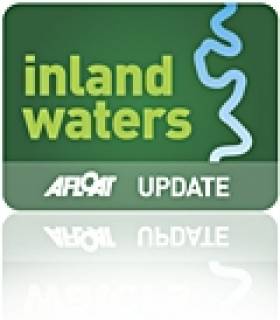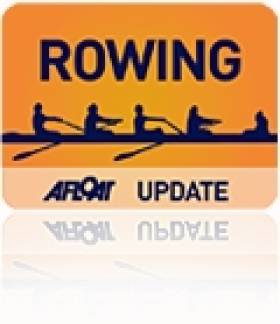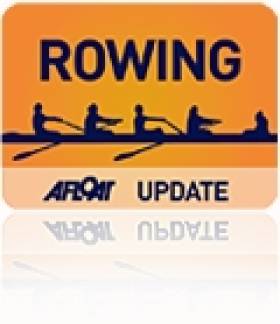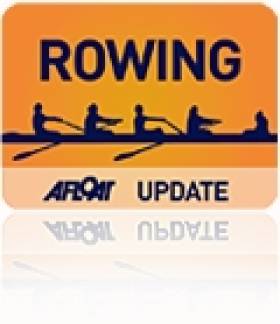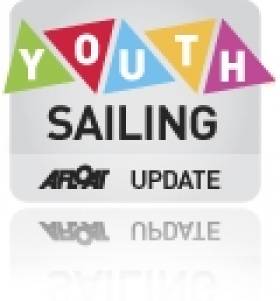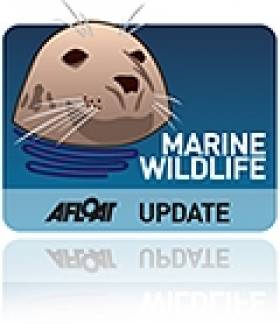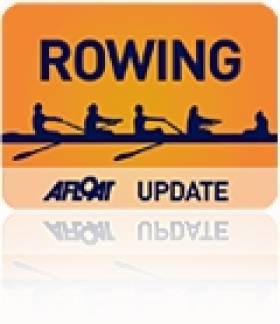Displaying items by tag: UCD
#INLAND WATERWAYS - Inland Fisheries Ireland (IFI) has announced the results of studies on the genetic makeup of brown trout stocks in the Suir and Boyne river catchments.
These studies form part of a wider scheme looking at Ireland's larger riverine catchments - assisted by the Office of Public Works, geneticists from UCD and trout anglers across Ireland - and involve a chemical analysis of scale samples from fish known as 'micro-satellite DNA analysis'.
The results from the Suir and Boyne are described by IFI as "quite amazing" and "of significant value" to managing the fisheries in these areas.
In both catchments, the first step saw trout stock samples of young fish examined genetically, and they were shown to be discrete - in other words, fish from any given tributary were found to be genetically different to those from others.
The next step involved samples of adult fish from the main river, contributed by anglers, which were then related to the different tributary genetic types.
Summary results from the Suir and Boyne show that there are respectively seven and five distinct families of trout in the catchment area; that most fish born in tributaries migrate to the main stem till adulthood before returning to their tributaries to spawn; that numbers migrating from individual tributaries are variable, but fish don't cross into adjacent catchment areas; and that there movement of young trout along the river system is "extraordinary", with fish often migrating from near the source to the mouth.
More details on findings for the Suir catchment and Boyne catchment are available on the IFI website.
The rain came to the National Rowing Centre yesterday, but the good racing at the National Rowing Championships continued – and there was even a raging controversy as UCD’ s men’s intermediate eight was disqualified from the semi-finals after the cox turned up four minutes late for her weigh-in. UCD maintain that she should have been allowed leeway because she had reported earlier but was told to return with a registration card. In the final, Queen’s took the title, with Trinity second.
The most exciting race of the first session was in the women’s senior quadruple sculls, where Skibbereen passed a faltering Old Collegians/Three Castles crew in the closing stages and won by half a second. Bann and Commercial were more comfortable winners of the men’s junior 18 coxed fours and the women’s intermediate double sculls, but the most emphatic winner was Hilary Shinnick int the women’s junior 18A single sculls – and the Fermoy girl turned 16 in March.
National Rowing Championships, National Rowing Centre, Cork – Day Two
Men
Eight – Intermediate: 1 Queen’s 6:00.1, 2 Trinity 6:01.7, 3 Neptune 6:05.5.
Four, coxed – Junior 18A: 1 Bann 6:33.5, 2 St Joseph’s College 6:41.8, 3 Portora 6:47.6.
Pair – Senior: 1 Queen’s (E Mac Domhnaill, M Ewing) 6:56.7, 2 Grainne Mhaol 7:01.1, 3 St Michael’s 7:01.7, 4 Queen’s B 7:12.9, 5 Galway B 7:15.0, 6 Galway A 7:52.7.
Women
Sculling, Quadruple – Senior: 1 Skibbereen 6:51.2, 2 Old Collegians/Three Castles 6:51.7, 3 St Michael’s 7:14.5.
Double – Intermediate: 1 Commercial 7:35.1, 2 Skibbereen 7:40.0, 3 Garda 8:17.0.
Single – Junior 18A: 1 Fermoy (H Shinnick) 8:05.9, 2 Skibbereen (M Dineen) 8:10.7, 3 Portora (K Cromie) 8:19.7.
Four In-A-Row for UCD in Gannon Cup
UCD beat Trinity by four and a half lengths in the Gannon Rowing Cup for senior men on the river Liffey in Dublin yesterday. It was their fourth consecutive Gannon and it headed up a clean sweep of colours titles in the new St Patrick’s Day slot. The Corcoran Cup for senior women was a close race, with UCD winning by three-quarters of a length, but Trinity’s novice women and novice men were well beaten.
Colours Races, River Liffey, Dublin
Gannon Cup (Senior Men): UCD (C Pierce, R Murray, S O’Neill, D Neal, F Manning, S Jacob, G Duane, P Grogan; cox: J Lynch) bt Trinity 4½l. Dan Quinn Shield (Novice): UCD bt Trinity 4l.
Corcoran Cup (Senior Women): UCD (C Tanner, K Joy, C Ni Reachtagain, A Bulman, S Bennett, A Gilligan, L Reid, B Lait; cox: C McGowan) bt Trinity ¾l. Moorhead Trophy (Novice Women): UCD bt Trinity 5l.
Click this link for the Latest Rowing News
Cork Crews Rise to the Top at Cork Head
Cork crews saw off rivals from far and near at the Cork rowing Head of the River at the Marina on Saturday. UCC’s men’s senior eight were the fastest men’s crew – by 1.3 seconds from De Maas of Rotterdam, a masters eight. The fastest women’s crew was Cork Boat Club’s junior 18 eight, adjudged just .8 of a second quicker than UCD’s women’s senior eight. The fastest men’s single sculler was John Keohane of Lee Valley and Karen Corcoran-O’Hare of Shandon was the fastest women’s single sculler.
Cork Head of the River, The Marina, Cork, Saturday
Overall: 1 UCC men’s senior eight 12 minutes 6.7 seconds, 2 De Maas, Rotterdam men’s masters eight 12:08.0, 3 UCC men’s novice eight 12:25.9, 4 UCD men’s novice eight 12:42.4, 5 Presentation College men’s junior eight 12:44.3, 6 Muckross intermediate eight 12:49.9.
Men, Eight – Senior: UCC 12:06.7. Intermediate: Muckross 12:49.9. Novice: UCC 12:25.9. Junior: Presentation 12:44.3. Junior 16: Cork 13:21.2. Masters: De Maas 12:08.0.
Fours – Senior: Cork/Garda 12:53.6. Intermediate: UCC 13:40.6. Novice: Cappoquin 13:43.9. Junior 18, coxed: Presentation 13:04.0
Pair – Junior 18: Presentation 14:58.7. Masters: De Maas 13:09.9. Coastal – Novice: Ahakista 17:28.7.
Sculling, Quadruple – Senior: Shannon 13:50.8. Novice: Shannon 15:07.4. Junior 18: Cork 13:05.3. Junior 16: Cork 13:15.2.
Double – Intermediate: Cork IT 13:41.6. Junior 18: Clonmel 13:53.9. Junior 16: St Michael’s 15:04.4. Coastal – Novice: Kilmacsimon 16:17.2.
Single – Senior: Lee Valley (J Keohane) 14:16.4. Intermediate: Lee (O’Connell) 14:53.4. Novice: Lee (O’Connell) 14:37.9. Junior 18: Workmen’s (Burns) 14:33.0. Junior 16: Shandon (Casey) 15:08.9. Masters: Skibbereen (Barry) 15:40.07. Coastal – Novice: Kilmacsimon 17:33.6
Women – Overall: 1 Cork junior eight 13:40.0, 2 UCD senior eight 13:40.8, 3 St Michael’s junior eight 13:54.1.
Eight – Senior: UCD 13:40.8. Novice: UCC 14:25.4. Junior 18: 1 Cork 13:40.0. Junior 16: Clonmel 16:21.0.
Four – Senior: Muckross 14:15.9. Intermediate: UCC 17:00.9. Novice: UCC 16:29.8. Masters: Skibbereen 22:34.9.
Pair – Junior 18: St Michael’s 15:00.2.
Sculling, Quadruple - Novice: Shannon 15:51.4. Junior 16: St Michael’s 15:16.5.
Double – Intermediate: UCC 16:15.1. Junior 18: Cork 14:43.9. Junior 16: Lee 15:42.3. Masters: Cork 15:38.3.
Single – Senior: Intermediate: Shandon (K Corcoran-O’Hare) 15:39.7. Junior 18: Lee (Kearney) 16:52.1. Junior 16: Lee (Hamel) 16:13.6. Masters: Cork (Crowley) 17:49.2.
Coastal: 1 Kilmacsimon men’s novice double scull 16:17.2, 2 Ahakista men’s novice quadruple coxed scull 17:28.7.
Click this link for Irish Rowing detailsClick this link for the Latest Rowing News
Spinnaker on Top in Team Racing National Championships
Last weekend's The Irish Team Racing Association National Team Racing Championships attracted it's largest entry for many years, with 21 teams registered.
The event was hosted by the Fastnet Marine and Outdoor Education Centre in Schull, West Cork.
Four teams travelled over from the UK, and 6 under 19 teams, all from County Cork, competed. They joined the keenest of the post-college teams and the leading university teams to constitute the largest Championships that Ireland has seen for many years. Schull, the venue for next year's World Championship, was a major attraction, but the change of date, from March to November, has made it easier for college students and school pupils to attend.

Weekend Team Racing action from Schull. More photos HERE. Photos: Brian Carlin
The weather forecasts had been predicting storms, floods and general mayhem for days if not weeks beforehand. But Saturday dawned to reveal Schull Harbour in an unusual state – the wind had disappeared! Racing started 3 hours later than planned. However, by the end of the day the first round had been completed. This was a seeded round robin, with each of the four League made up of a UK team, a leading Irish team, a leading college team and two others, including the youth teams.
The results of the first round determined entry into the second round – all the UK teams won all four leagues, with the George Knights, the George Gladiators, Supertroopers and UCD finishing second. These teams were joined in the Gold Leagues of the second round by the winners of play-offs between third place teams. The Bumsby Babes, a youth team from Royal Cork YC, had done well to win 2 races to qualify for a play-off against University of Limerick and they were in a strong position when equipment failure meant that one of their boats retired . In the subsequent re-sail UL managed to win the race and qualify.
On Sunday morning Schull was looking it's best in bright but cold sunshine. Unfortunately, the beauties of the West Cork landscape were exactly mirrored in the unruffled water of the harbour! Competitors, who had made a remarkable effort to arrive on time for an 0900 start, barely recovered from the reception organised the previous evening by the World Championship Committee, waited. When racing eventually got underway, in a fitful breeze, it quickly became obvious that there was no possibility of finishing the second round. Plan B was implemented, a knockout round between the four winners of Round One to determine the outright winner, another between the 4 Irish team placed second in the Round One Leagues to determine the ISA medal places and a Youth round.
GP14 World Champion Ian Dobson in Schull
Spinnaker came through the semis and final to win overall first place. The two Royal St George teams qualified for the final. Last year's winners, the Gladiators won the first race only after finishing places were confirmed by a redress hearing. However, the more experienced Knights went on to win the next to races to reclaim the trophy they had "lent" to the Gladiators last year. The third place play-off, which saw some of the noisiest races of the weekend, resulted in a win by Supertroopers over UCD.
In the Youth event Schull A beat Schull B to win the opportunity to take on, and eventually defeat the Bumsby Babes.
Next year's Championship will be sailed out of the Royal St. George on 12-13 November. However the next challenge for Irish team racers will be qualification for the World Championship, with selection trials planned for both the Youth and Open categories early in 2011.
The event was also the first opportunity to try the new TR3.6 which will be used for the Team Racing Worlds. Video below of the new TR3.6 and voice over from Team Racing World organiser David Harte in Schull. Stills by Brian Carlin HERE.
Cork Institute of Technology Win 2010 Student Yachting Nationals
Last weekend saw the Student Yachting Nationals take place at the Royal Cork Yacht Club. The students had the use of the ISA J80 Sailfleet for the event. Six college teams entered for the Nationals which was the Qualifier for the Student Yachting World Cup 2011.
Racing was scheduled for Cuskinny on Friday and conditions were ideal with 17-20 knots of breeze. Race Officer, Nathan Kirwan, got in four good races lasting some 40 to 50 minutes each. However, spinnakers were banned as some wipeouts had been observed by the ISA Bosun who exercised his judgment in this regard. Some two minutes after the start of the first race UCC skippered by Robert O'Leary suffered a snapped halyard but were refused redress. CIT skippered by George Kenefick lost their only winch handle overboard some three minutes before the start in race 1 but still managed to win the race by a comfortable margin. In race 2 UCC came back strongly to take the gun and pushing CIT into second place. At this stage match racing had begun between the two Cork colleges with each throwing dummy tacks to try to clear their air. In Race 3 TCD skippered by Alistair Kissane took the win with CIT in second and UCC third. The final race of the day was won by CIT with UCC third. Overall standings for Day One were: CIT 6pts, with UCC and TCD on 12 pts each. UCD had got off to a shaky start which was to prove costly for them as they were on form on days two and three.
On day two the Race Officer moved the course to the Curlane Bank and spinnakers were permitted. CIT found their rythym taking the bullet in race 5 with UCD in second and a poor mark rounding relegated UCC to third place. Race 6 saw the O'Leary and Kenefick teams doing circles at the pre start as the competition was intensifying and it was looking like a two horse race. UCC took first place with NUIG taking second and CIT third. Donagh Good of CIT went for a quick dip in the cold water but managed to grab on and was pulled back on board by George Kenefick and Kevin Goulding. Later during day 2 the wind was rising to 22 knots so spinnakers were once again banned. UCC found the conditions very much to their liking, taking the win, with TCD in second, UCC third and CIT fourth. Race 8 proved to be rather interesting with CIT managing to relegate UCC to last position and managing to keep UCC in their sight for the duration of the race. Downwind was difficult for CIT with UCC right on their tail but UCC were not successful in finding a passing lane. Again, UCD took their second bullet of the day with CIT and UCC in fifth and sixth positions some four to five minutes behind the rest of the fleet. CIT were able to discard their fifth position but UCC were unlucky in having to count their sixth as they also had a sixth from day one. TCD again got a second position. Results after day two were: CIT 14pts, UCC 19pts, UCD and TCD on 21pts each.
Day 3 was a non discardable coastal race from Crosshaven to Kinsale counting for 1.5pts. The start line was just off Roches Point with five knots of breeze and brilliant sunshine. UCC led the fleet and NUIG and CIT were in last position 300 metres behind the rest of the fleet. As the race went on the wind increased to a nice south westerly breeze of 12 to 14 knots. As this stage it looked as if it might be UCC's lucky day but Team CIT maintained their composure and by tacking close to the shore and keeping out of the tide managed to finish in third position at the Bulman Buoy with UCC first and UCD second. This result was to prove sufficient to give CIT the national student title for 2010.
Overall Results:
CIT 18.5pts
UCC 20.5pts
UCD 24pts
TCD 28.4pts
NUIG 33pts
UL 40pts
Study Shines Spotlight on Starry Smooth-hounds
New research from University College Dublin on marine animals may bring closer attention to one of Ireland's least well known species of shark.
Dr Edward Farrell of UCD's School of Biology & Environmental Science spent the last four years of his PhD project studying the starry smooth-hound, a regular in the shallow waters of Ireland's east coast that can grow to over a meter in length.
"It's amazing how little was known about this species," said Farrell. "Until recently we weren't even sure what species we were dealing with, but we developed a genetic method which allowed us to confirm that it is the starry smooth-hound which occurs in Irish waters and not the related common smooth-hound."
Starry smooth-hounds are not valuable as a commercial species in Ireland, but are growing in popularity on the continent. Once abundant in the Mediterranean, their numbers have dwindled in recent years.
The sharks were previously considered a fast-growing species, meaning they were not a conservation concern. However Farrell's research has revealed that those in Irish waters actually grow twice as slowly as once thought, and only reproduce every two years rather than annually.
"There are currently no management measures for this species in European waters mainly due to the lack of biological information," said Farrell. "So our main aim was to gather the necessary data.
"Hopefully this can be used now to ensure their sustainability and prevent a repeat of the overexploitation seen in Mediterranean waters."
Up to eight hundred rowers from twenty eight clubs will compete in Rowing Ireland’s second Grand League Regatta which takes place next Saturday at the Queen's Regatta in Castlewellan , Co Down. The leading clubs after the first Grand League Regatta of the season, which was held at the National Rowing Centre in Cork two weeks ago are:
Skibbereen 192 points, UCD 96 pts, Lee Rowing Club, Cork 86 pts and Commercial RC Dublin 75pts.
.
UCD lead the Men's Senior Category ahead of Commercial, while Dublin University Ladies Boat Club lead the Women's Senior Category over NUI Galway.
Cork Clubs dominate the junior ranking with Skibbereen RC on top in both Junior Men’s and Women’s categories.
In the Junior Women, Skibbereen RC lead Shandon BC with Presentation College BC holding down the number two spot in the Junior Men’s category.
Rowing Ireland spokesperson, Pat McInerney said, “The top senior men’s race this weekend sees Queens up against UCD, Commercial, St Michaels, Neptune and several junior crews including the Bann juniors who placed very well at the recent London schools head.”
Click this link for the Latest Rowing News


























